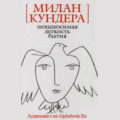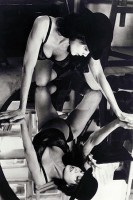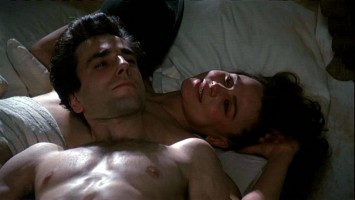 Choosing which book to read next, I am often guided by such an obscure concept as the prestige of a book, which usually manifests itself in “non-pop” and “alternativeness”. Such books often resemble serious author’s cinema – frankly boring and understandable to few. Sometimes, on the contrary, a fascinating story is hidden behind a frightening name (this was the case with A.S. Makarenko’s Pedagogical Poem).The phrase “Unbearable lightness of being” also somehow got into the “prestigious” section of my cultural associations. And choosing to read this after the entertaining “, I settled on this solid title.Contrary to my fears, the book turned out to be quite digestible (Kundera fans, don’t be offended – I praise it so much). Of course, not a blockbuster thriller, but an interesting work in its own way. Again, there is a certain charge of eroticism, which certainly fuels the interest of the reader (mine, for example). As far as I understand, this topic was also not bypassed during the film adaptation of the book.
Choosing which book to read next, I am often guided by such an obscure concept as the prestige of a book, which usually manifests itself in “non-pop” and “alternativeness”. Such books often resemble serious author’s cinema – frankly boring and understandable to few. Sometimes, on the contrary, a fascinating story is hidden behind a frightening name (this was the case with A.S. Makarenko’s Pedagogical Poem).The phrase “Unbearable lightness of being” also somehow got into the “prestigious” section of my cultural associations. And choosing to read this after the entertaining “, I settled on this solid title.Contrary to my fears, the book turned out to be quite digestible (Kundera fans, don’t be offended – I praise it so much). Of course, not a blockbuster thriller, but an interesting work in its own way. Again, there is a certain charge of eroticism, which certainly fuels the interest of the reader (mine, for example). As far as I understand, this topic was also not bypassed during the film adaptation of the book. My associative series are sometimes insanely simple and straightforward. The Czech doctor Tomas quickly paralleled in my mind with the Russian doctor Zhivago, who also ate the bitter fruits of love against the backdrop of the complete collapse of the Motherland.I was very, very pleased with the reception when the author described the same events, first from the point of view of a man (Tomasz), then from the point of view of a woman (his wife) and it turned out that they live, as it were, in different worlds, only slightly touching from time to time and there is no chance to truly understand each other. At the same time, the reader, watching from the outside, fully understands the problems and even shares the opinions of each of the characters, for all their opposites.
My associative series are sometimes insanely simple and straightforward. The Czech doctor Tomas quickly paralleled in my mind with the Russian doctor Zhivago, who also ate the bitter fruits of love against the backdrop of the complete collapse of the Motherland.I was very, very pleased with the reception when the author described the same events, first from the point of view of a man (Tomasz), then from the point of view of a woman (his wife) and it turned out that they live, as it were, in different worlds, only slightly touching from time to time and there is no chance to truly understand each other. At the same time, the reader, watching from the outside, fully understands the problems and even shares the opinions of each of the characters, for all their opposites. The author, like an old bomber (modern ones cannot afford this), over and over again “enters” the plot, revealing more and more new facets of being. I, as a reader, realized that they were playing with me, they were leading me, but I did not resist, but rather rejoiced at such an innovation. As soon as I “joined” the plot, became a hero, believed in the reality of what was happening, as the author writes in plain text that he is inventing it for such and such a purpose. Pattern break, I’m in a hypnotic trance. Then I specifically looked into Kundera’s biography to make sure that he was not a doctor. Strange that I didn’t check to see if he died in a car accident (in an old pickup truck with no brakes).Close to my heart was the idea of a “great march”. Unfortunately, I no longer remember exactly how Kundera formulated it.By the way, did anyone understand why the benches floated along the river? No, I guess what this metaphor means, but did the author explain this phenomenon from the point of view of book “reality”?P.S. Bowler hat!
The author, like an old bomber (modern ones cannot afford this), over and over again “enters” the plot, revealing more and more new facets of being. I, as a reader, realized that they were playing with me, they were leading me, but I did not resist, but rather rejoiced at such an innovation. As soon as I “joined” the plot, became a hero, believed in the reality of what was happening, as the author writes in plain text that he is inventing it for such and such a purpose. Pattern break, I’m in a hypnotic trance. Then I specifically looked into Kundera’s biography to make sure that he was not a doctor. Strange that I didn’t check to see if he died in a car accident (in an old pickup truck with no brakes).Close to my heart was the idea of a “great march”. Unfortunately, I no longer remember exactly how Kundera formulated it.By the way, did anyone understand why the benches floated along the river? No, I guess what this metaphor means, but did the author explain this phenomenon from the point of view of book “reality”?P.S. Bowler hat!
